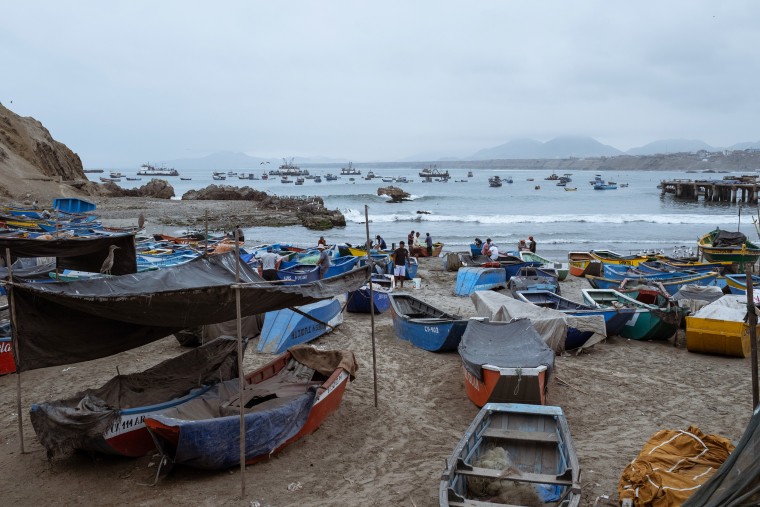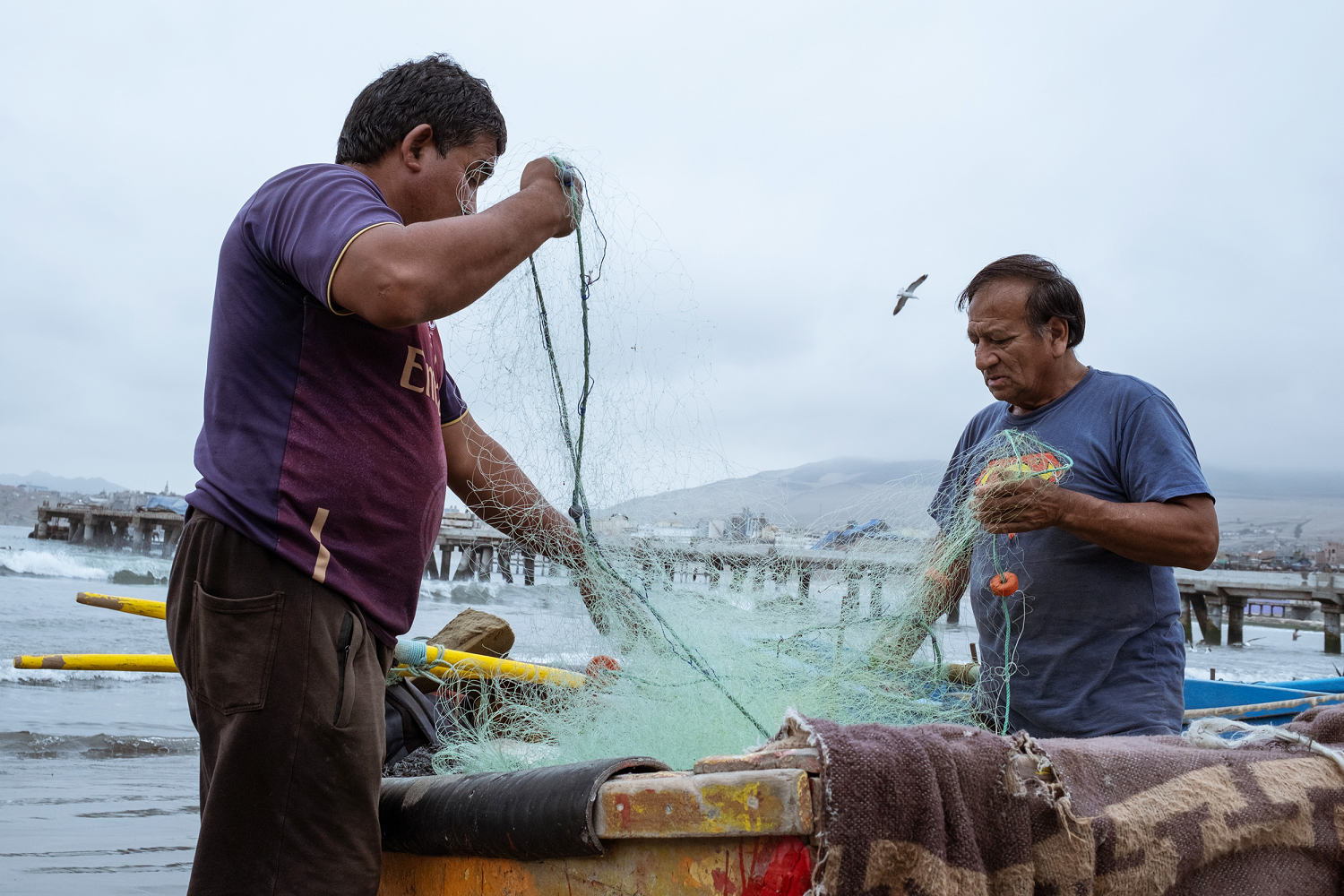“They fish for thousands of hours, which is an astronomical amount when you consider how targeted, on a very small area that fishing pressure is,” Valentine said.
The report found that most of the Chinese vessels engaged in a practice called “transshipment,” offloading their catch onto massive cargo ships with refrigerated holds so they could continue fishing. Oceana tracked one Chinese squid jigger that was at sea for 637 days. Though not illegal, transshipment can be used to conceal illegal catches or the use of forced labor.
Forty-five of the Chinese vessels also vanished from public tracking systems for a total of 23,000 hours after apparently turning off their GPS devices, which transmit their identity and location to other vessels.
“When this happens, we lose our eyes on the sea,” Valentine said. “We don’t know where this vessel is or what it’s doing.”

The primary target of China’s fishing industry is the giant squid, also known as the Humboldt squid, which is among the species managed by SPRFMO. Global demand for giant squid, the most abundant marine invertebrate in the southeastern Pacific, is increasing because of its high nutritional value and because 75 percent of the animal can be used for food.
“Many people think of these giant squid as a renewable resource because they reproduce very frequently and very quickly,” Valentine said. “But the problem is when you have these hot spots of very intense fishing, they’re not able to have that quick reproduction and quick turnaround.”
It’s difficult to know exactly how many giant squid are in the ocean and how well they’re doing, Valentine said, with scientists relying mainly on catch data from fishing vessels to determine how much is being removed. But if current trends continue, she said, it’s possible they could disappear entirely.
A ‘floating Manhattan’
China’s squid jiggers gather just over 200 miles from the coast of Peru, where international waters begin.
“They always stay the same distance,” Lt. Cmdr. Luis Monte, 42, of the Peruvian Navy said in October as he flew a twin-turboprop plane over a fleet of hundreds of Chinese vessels.
The five-man crew flew low over the ships, watching as they pointed massive lights at the water to attract giant squid. After the creatures gather under the shaded area underneath the ships, they are caught using barbless lures on fishing lines that are jigged up and down in the water by machines. This is why the vessels are known as “squid jiggers.”
The crew said that at night the lights can make the fleet appear like a city on the water, a floating Manhattan.
“When they catch the squid they return to the mother ships, and the mother ships return to China,” Monte said. “It’s really bad because they affect our fishermen.”
The U.S. has made it a priority to help countries such as Peru police their coastlines. “We want to see the rules-based order upheld,” the Coast Guard’s Ledbetter said.

One reason China might be amenable to the American inspections for illegal catches, Valentine said, is because of its trade with the U.S., one of the largest seafood-importing countries in the world. According to Oceana, the U.S. has imported almost $700 billion worth of squid from China and Hong Kong in the past five years.
“Up to 85% of the seafood that we eat in the United States is imported, and a significant amount of that is coming from China,” she said. “We are talking about billions of dollars that is lost to China if this market is closed out.”
Last year Congress passed the Maritime Security and Fisheries Enforcement Act, which threatens exactly that. Vessels can be blacklisted from the U.S. market if their catches are obtained through illegal, unreported and unregulated (IUU) fishing. The U.S. is also considering whether to include squid in its seafood import monitoring program.
A spokesperson for the Chinese Embassy in Washington said that the IUU “activities of individual fishing vessels should not be attributed to their countries, and there was no legal basis “to broadly identify a nation for IUU fishing based on the activities conducted by a small number of fishing vessels.”
Source: | This article originally belongs to Nbcnews.com









